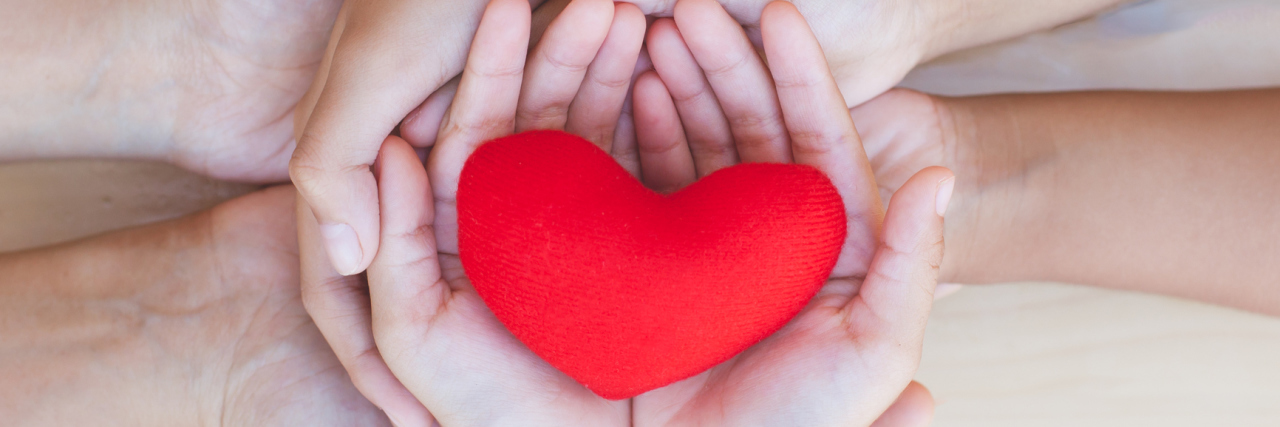After the extremely traumatic birth of my son, and the four weeks we spent in the NICU while he was critically ill and then recovering, I have experienced a prolonged time with a sick and distressed baby. My child was born prematurely, with underdeveloped lungs and nearly died from his inability to breathe. He spent a month in the NICU fighting bacterial meningitis and learning to feed. He is nearly 3 years old now, and after he came home he developed gastro-oesophageal reflux disease, food allergies, obstructive sleep apnea, chronic ear infections, profound anaemia and has autism.
Almost three years of battling health conditions that are not well recognized all of the time, being treated as a hysterical first-time mother, and having to withdraw from everyday life in order to cope, has had a dramatic impact. Not only have I not been able to work, reducing the income available to our family, but we have missed countless family events, cancelled holidays, and not been a part of the community in the way that is typical for other families. As a person with anxiety, this experience has understandably caused more anxiety and ultimately post-traumatic stress disorder (PTSD).
What I have learned about parenting-related PTSD, is that many people in your circle, family, friends, doctors or acquaintances say and do things that hurt, albeit unintentionally. Whether it’s because they can’t deal with the emotions, or whether they don’t know what to say, at the end of the day, the hurt caused can contribute to more of a divide.
So if you know someone who is going through a challenging stage with a child; a child who is seriously ill, has a chronic condition or has developmental issues, here are some tips:
1. What your family member or friends need most is understanding and kindness.
They don’t need ideas on how to “fix” their child, and they don’t need platitudes like, “it’s not that bad,” or “other people have it worse”or “that’s just what kids do.” When a child is seriously ill or has developmental issues, the family is surrounded by medical professionals who treat the child for the condition that is diagnosed. The medical professionals are not appeasing the parents, there is truly a need for treatment, and there is real concern for the child. Trying to appease a parent can be enraging and isolating, as well as cause the parent to second-guess themselves and feel extreme anxiety.
2. The family will need practical and emotional support.
If you don’t feel equipped to give emotional support, try to find a way to develop that skill. When a family is facing a difficult situation, they are surrounded by medical professionals who have the practical strategies on what to do next, but they don’t really provide any emotional support. Certainly, a family may have access to counseling, but counseling can be sporadic or expensive, so as a close friend or family member, try to step up and talk about how they are feeling. Ask questions and listen. Don’t offer advice or strategies; unless you have faced the same challenge, you really won’t understand the intricacies of a condition or situation. For example, a child with severe respiratory issues is not the same as having a toddler who gets a cold from day-care. It can be isolating when someone’s condition is reduced to a normal or everyday occurrence.
3. Offer practical support.
Do a load of washing, drop off meals in disposable containers, order some groceries, take their dogs for a walk, play with the child so the parent can do paperwork or have a rest. Managing a child’s health can be incredibly demanding, expensive and time-consuming. Sometimes giving the parent some time to focus on paperwork and emailing specialists, following up tests and organizing information for appointments, can be truly so helpful.
4. Ask how the child is progressing, how the parent feels, and offer to listen and sit with that person to help them feel heard.
Facing an uncertain future with a child is scary and difficult, it’s hard to even put in words the emotions and challenges that are experienced. When family and friends dismiss concerns or show little interest in the progress of the child’s health, the family may feel very isolated and withdraw from you. Try not to see that as a slight against you, try to recognize it as pain, anxiety and/or depression.
What they need most is kindness, your ears and your heart.
Getty image by Sasiistock

